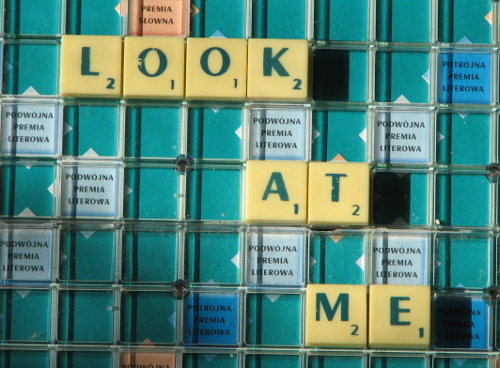Facebook is dead - long live the mesh

For those reading later, Facebook was an early 21st Century “Social Network”, it was web application that you can sign up to and share text and pictures with other users.
1. Tangent on why I don’t use Facebook

I was at University when Facebook started so I got an early invite when it was a University based system. I quit in 2006 when it became available to the whole public and stopped being connected to the physical campus. I am not some kind of elitist, it just lost any meaning to me at that point. I am surprised it is still going a whole decade later.
There are no real barriers to talk any of my old school friends, many have parents still living in the same place as my parents and moving in the same circles as my parents but for whatever reason we didn’t bother keeping up.
Suddenly, I was being collected by such people in the race to get more ‘friends’ and was being distracted with requests to play scrabble and vote on things and so on.
Many normal people seem to have taken on this horrific American practice of presenting a horribly bland PR-style over-positive view of yourself. Everyone on Facebook is Hyacinth Bucket from Keeping Up Appearances.
Unless, like Pheidippides, you brought important news about how you have defeated the Persians and then died on the finish line, I don’t really care about the marathons you are training for.
Unless you are sending me a slice, I don’t care about the cake you made. Unless you have wired it up as an IoT project, I really don’t care about your cat.
2. From the Web to the Mesh

For those in the military and Universities, we made our own networks. To provide internet to homes and businesses, commercial ISPs moved in.
This however was not the only possible model. Before BT was privatised, it had its own plan to provide a national data network to be run by the post office.
Since then, hundreds of municipal wireless networks have been setup. Wikipedia maintains a big list.
Rather more interestingly, there are many attempts to get away from the centralised, corporate/government controlled Internet altogether.
Remove the ISPs, the DNS, etc and just depend on distributed Mesh Networks where every node has everything required to fully connect to the other nodes. This is a mathematically superior approach which in the end will require a lot less electricity, bureaucracy and cost.
However, when all nodes are equal, there is not any obvious point where organisations like the CIA or GCHQ can stick themselves as a man in the middle, and there is little ability for the government to censor or cut anyone off using easy digital means.
But it is fine. It is too expensive to make water pipes care if you use the water for drinking, cleaning your car or for water boarding a terrorist suspect.
It is not economic to replace the roads with special surfaces that turn to mud if a bank robber is performing a getaway.
3. I still miss Gopher

In 1991, the leading Internet content protocol was Gopher. It had automatic client-side formatting and strong typing of content files, removing many security problems that WWW faced.
It was also easy for anyone to add to gopherspace, you didn’t need coding or graphic skills.
However, WWW was completely public domain so won, despite its technological shortcomings. By 2017, we have lots of tools like markdown, bootstrap, Jekyll/Sphinx etc which mean you don’t have to put a lot of work into making a readable website.
This blog is statically generated using Sphinx and there is no serverside code. I am paying absolutely nothing for you to read this.
It is getting easier all the time, but it is still not as easy as it should be to add your own content to WWW.
5. Jesus Vs Pontius Pilate

Pontius Pilate served as governor of Judaea then retired to his villa in Rome. Did he even remember executing Jesus? To him it would have seemed like one of many local disputes he dealt with. Being a colonial overlord was known to be a hard gig.
Pilate got a lot of bad PR, being the baddy of the Easter story but that was later. Pilate was most probably already dead long before Christianity spread far enough for Rome to notice it.
Jesus got tortured and executed then got a billion followers and a seat at the right hand of God, but no villa.
Jesus had two friends named James, his brother and James, son of Zebedee. One was thrown off the temple and/or stoned to death, the other had his head cut off with a sword (Acts 12:1-2). James does have a cathedral built over where his head was buried but he didn’t get a villa either.
It is one thing to get millions or billion of followers, it is another thing to keep your head on your shoulders as well.
6. The silent majority

I never really felt like being a Jesus figure. Most people don’t, I talked a lot about the silent majority before.
The loudest people in tech are from the West Coast of the USA. Meanwhile, software developers and professors working within Universities can go native and be as left wing as the other professors.
However, the vast majority of developers are like the majority of most other people, just in the centre.
The crazy far-left minority are just disproportionately loud. When they bring their politics into a space or event not to do with politics, people mostly just politely humour them and nod along while looking at their watches or checking their phones.
No one breaks their bubble, people are keen not to prolong it any further. They have organised childcare or transport and want to just get on with fly-fishing or software development or whatever got them to the event.
Those far-lefties without self awareness may take this to mean everyone agrees, however this is a mistake, they are unprepared for events like Brexit or Trump when the majority show they don’t really care that much about their sacred cows.
Once all the centrist and the conservative speakers have been purged from Facebook, the silent majority will just silently fade out as their timeline gets boring and other things get invented that are more interesting than pictures of cats.
VR, IoT, the Mesh’s first killer app, whatever. There is always something new.
7. Technology is progress

A lot of the crazy left today is anti-technological. It is mathematics that will save the world not socialism or “Intersectionality”.
The famous book by Kernighan and Ritchie (K&R) has done more to progress humanity than Marx’s Communist Manifesto.
As I expressed in parts 14 and 15 of my previous essay: politics, as expressed in parliament, is really not that important. It is just dealing with the effects of technological change.
The character of Viktor Komarovsky in the famous Boris Pasternak novel Doctor Zhivago is a businessman or fixer who works with and benefits from the aristocracy. When Communism takes over, he carries on in the same role just with new clients.
Over the Twentieth Century, politics and culture have lurched back and forth from free market capitalism to socialism to this current corporatism and now we may be going back to capitalism.
However, software has just pressed on. From Turing through to K&R to Linus Torvalds and so on, we are in a line. Moore’s law, the compiler, the web, robotics, AI, the singularity. No one can stop us.
4. Social Networks Suck
To bridge this easy to read/hard to write gap, the social networks jumped in. These are easy for people to quickly post their cat photos and show off.
The concept ‘net neutrality’ describes how the WWW is (supposed to be) broadly content indifferent, it is just a pipe to push information through. Mesh networks described above take this concept even further.
Social networks are a downgrade from WWW, in that now content is inside silos that are centrally controlled by a private company with no requirement to enforce freedom of speech.
James Delingpole wrote an article about his problems being a centrist/conservative journalist and media personality using West Coast controlled social networks to promote his work:
Sounds like a lot of work.
James Delingpole has a nice podcast, if his content is good enough, his fans will share it, it doesn’t matter if he is on Facebook himself.
I am probably too old for Milo, but I notice that every time Milo does something, it still appears on Twitter, despite Milo being banned, because his limitless undergraduate fans share it.
Many years ago, I used to play MUD games and even wrote one once. One famous MUD had inside its introductory help file, something like “don’t base your life on a game you don’t control and can be banned from.”
Kind of why I stopped playing MUDs, when you find a MUD that doesn’t ban you, they tend to put you in charge. You cannot really play in peace as a casual player, even if you try to, someone will redesign the world half way through and negate all the time you put into building a character.
Another way of putting it is James is like an Ambassador to the USSR.
An Ambassador to a hostile country should always know they are on borrowed time. At any time the host country can revoke the credentials and force a replacement.
Maybe the Ambassador did something wrong, maybe not, maybe they were just too effective or were not able to be turned.
The Ambassador shouldn’t go native and base his life on being able to stay.
To take a different analogy, Western bishops used diplomatic charm to try to protect Russian Christians from being killed by the Atheist USSR.
No doubt useful work but appeasement and trying to fix the USSR wasn’t what won the cold war.
It was consumer goods, making the free world demonstrably better for ordinary people, this is what brought down the USSR.
Facebook is a totalitarian state, some people thrive there but generally, it is better to get out while you can.
The semi-free world is the WWW, the really free world is the Mesh, the darknet, peer-to-peer networks and Tor.
If possible, I want to build up the free world but it will happen anyway if it is meant to. Technology may or not be imbibed with a spirit, but it seems to have an inevitability about it.